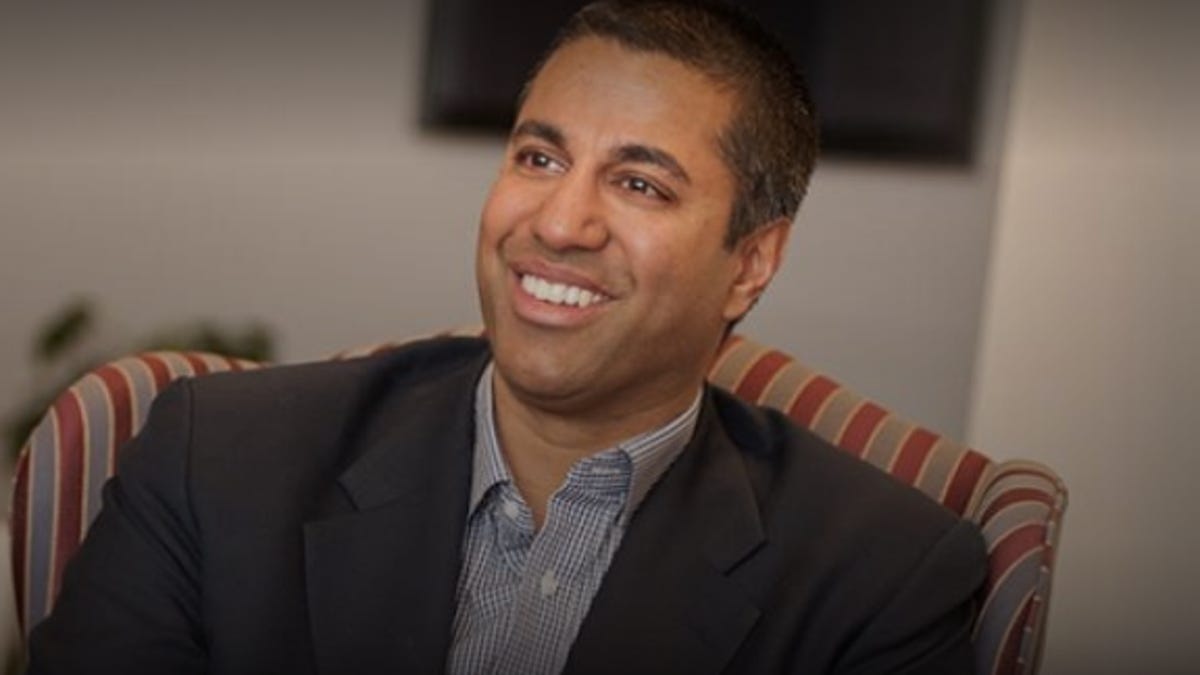FCC chairman pitches net neutrality reform to Silicon Valley
Ajit Pai, chairman of the FCC, looks for common ground between Silicon Valley and broadband providers to "fix" controversial net neutrality rules.

FCC Chairman Ajit Pai says he wants to keep an open and free internet but doesn't want the restrictive rules imposed by the FCC in 2015.
FCC Chairman Ajit Pai met with executives at Facebook, Cisco, Oracle, Intel and other major tech companies this week as the federal agency considers rolling back controversial net neutrality rules.
Pai traveled to Silicon Valley Monday to talk to companies that participate in the "internet economy," he told reporters at a news conference following the Federal Communications Commission's monthly meeting. Pai wouldn't say who attended the meetings or exactly what was discussed.
Instead, he said he was looking for ideas how the FCC could change the more restrictive aspects of its net neutrality rules, while preserving parts of the regulation that ensure the internet remains open.
"I've been simply soliciting thoughts on how to secure the online consumer protections that people have talked about," Pai said.
Pai emphasized he has always supported a "free and open internet" while opposing the more restrictive "Title II" parts of the Obama-era regulation. Title II refers to an aspect of the regulation that reclassifies broadband as a public utility, which puts the same kinds of restrictions on internet services as those imposed on traditional telephone services.
Companies like AT&T, Comcast and Verizon have opposed the Title II classification, arguing it's hampered investment. Meanwhile, consumer advocates and Democrats on Capitol Hill say it's necessary to ensure the rules stand up to court challenges.
Pai, who opposed the 2105 net neutrality rules when he was a commissioner, has since been trying to come up with an alternative solution. A proposal he reportedly discussed with broadband industry groups in Washington earlier this month would allow companies to voluntarily commit to not blocking or slowing down access to web services or sites. The plan calls for the Federal Trade Commission, not the FCC, to have oversight for enforcing the rules.
The tech industry's lobbying group opposes such a plan. In a meeting with Pai last week, the Internet Association, which represents companies like Facebook, Twitter and Microsoft, said in a public filing that the "internet industry is uniform in its belief that net neutrality preserves the consumer experience, competition and innovation online. In other words, existing net neutrality rules should be enforced and kept intact."
Pai wouldn't comment on the proposal he discussed with broadband industry groups. Instead he said he "simply was exploring outside the context of any pending proceeding how to secure some of those principles of free and open internet that I think most people agree on."
Pai is confident people on both sides of the issue can find "common ground."
"Title II has had harmful effects on the market," he said, stating that it has depressed investment and led to other controversial FCC rulemaking like the 2016 privacy rules, which President Donald Trump nullified earlier this month. "We need to make sure we have light touch regulation."
Tech Enabled: CNET chronicles tech's role in providing new kinds of accessibility.
Batteries Not Included: The CNET team reminds us why tech is cool.

